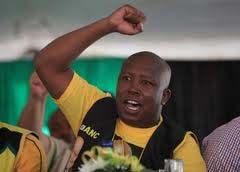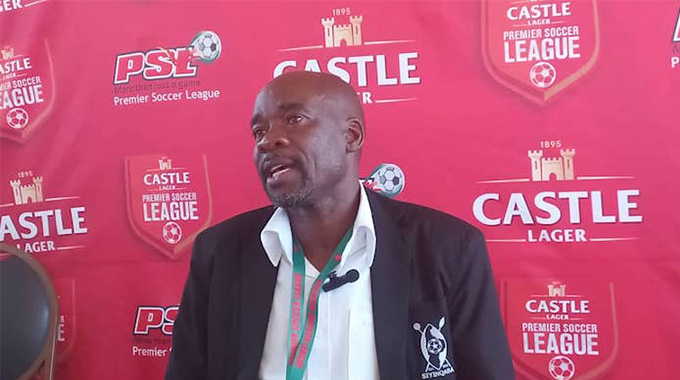Zifa make right move

masterstroke resolution that cleared the way for a transparent and fair conclusion to the Asiagate saga.
The country’s football governing body doesn’t usually get credit for the manner it manages its affairs and, given its obsession with policy decision that ranks on the comical, some of the criticism has been both blunt and fair.
The madness that swept across its boardroom when it came to the appointment of the Warriors’ coach highlighted the challenges that usually face Zifa when it comes to major policy decision making.
That the divisions which rocked the coach’s appointment could possibly have a big role to play, in pushing the Warriors out of a 2012 Nations Cup finals appearance, has all helped to paint this image of Zifa being a demonic organisation.
ALSO READ…
But the association has some very good men who have a passion to make a huge difference to the fortunes of the national game.
Zifa president Cuthbert Dube has already distinguished himself as a visionary man and deserves a lot of credit for the way the Warriors have rebounded into a competitive team, which could still make it to the 2012 Nations Cup finals.
Last Friday Dube and his crew met in the capital to discuss Asiagate and also to explore ways of how they could close this dark chapter of our national game.
Three of the Zifa board members, implicated in the Asiagate report – Kenny Marange, Methembe Ndlovu and Solomon Mugavazi – were suspended pending their appearance before an independent Ethics Committee.
DISCUSS THIS STORY ON FACEBOOK
By resolving to commission an Ethics Committee, which will be mandated with the responsibility to try those who have been implicated, the Zifa board showed that it remained committed to using the route of professionalism to bring finality to this case.
At a time when some of its board members, including others on the investigating committee that produced the Asiagate report, have already been accused of having personal interests in the case which swayed them from substance, Friday’s resolution was a joker in Zifa’s pack.
As they say in law, justice must not only be done but it must also be seen to be done.
That is why the pending appointment of a retired judge, possibly to head the Ethics Committee that will hear the prosecution case and determine either the innocence or the guiltiness of those implicated, is a refreshing angle to this saga.
In such complex cases, where the difference between being guilty and innocent is a very thin line and needs an experienced legal eye to determine, and where the fate of scores of men lie in the outcome of this disciplinary procedures, it is important not to gamble.
Fifa didn’t gamble when faced with a complex situation when its vice-president Mohammed Bin Hammam was accused of bribing Concacaf delegates in the countdown to the elections for the world football governing body’s presidency in June.
Bin Hammam was sent to face the Fifa Ethics Committee, itself a committee of some of the finest legal minds in the game, who – because of the sensitive nature of the cases they handle – don’t have to be part of the organisation’s leadership structures.
By keeping their Ethics Committee far away from the politics governing Fifa, with none of its members on the executive committee, the Zurich-based organisation tries, as much as possible, to shield them from being influenced by what goes on in its corridors.
In doing so, when the time comes for justice to be served, the Fifa Ethics Committee – by virtue of its distance from the hotbed of the game’s politics – gives the impression that justice is not only being done but is also being seen to be done.
It was Lord Hewart, a former British Solicitor General, who observed in Rex v Susses Justices ex parte McCarthy (1924) that: “… it is not merely of some importance but is of fundamental importance, that justice should not only be done, but should manifestly and undoubtedly be seen to be done.” Ndumiso Gumede and his committee investigated Asiagate on the instructions of the Zifa board, after being appointed by the same board, and everything that they did, they were doing it on behalf of the board.
Whatever the committee established in their report, they did it on behalf of the Zifa board.
The investigating committee and the board are the same entity and once a position had been taken, in this case such a position as presented by the findings contained in the report, it was only professional that another independent body determines either the innocence or the guiltiness of those implicated.
By investigating the case, through the Gumede committee, the Zifa board became the complainants and the prosecutors and, by establishing a certain position on the case, as provided by their findings, they also passed a judgment.
But, crucially, that committee did not try anyone.
Even Fifa, when they established that there was substance to the allegations that Bin Hammam might have bribed the Concacaf delegates ahead of the presidential election, did not have the powers to wield the axe because of the risk of running foul of an environment where justice must be seen to be done.
So Bin Hammam had to be put to his defence, even in a case where the evidence appeared overwhelmingly against him, and the Fifa Ethics Committee – the legal experts empowered to deal with such cases – had to take over the case and establish either his innocence or his guiltiness.
Bin Hammam was found guilty but he still has other avenues open for appeal, including the Centre of Arbitration for Sport, which he is pursuing right now.
Zifa have to be applauded for taking a professional route for the resolution of this case and it will now be interesting to hear all those who are implicated when they are finally put to their defence.
Dube and his team were also right to wield the suspensions on the three board members once the board endorsed the report by the investigating committee and decided that the cases should be forwarded to the Ethics Committee.
Given that it is the Zifa board that is trying to clean its game, and the one appointing the various structures for such an exercise, it was only proper that those, within its ranks who have to clear their names, should step aside.
The Zifa board does not only have to serve justice, when the time comes for the sake of the constituency that trusts it to lead this national game, but it has to be seen to be serving such justice.
And even the language coming from Zifa House is impressive.
“The decision to suspend the board members was unanimous and was made with a view of facilitating the on-going investigations,” said Zifa chief executive Jonathan Mashingaidze.
“The suspension of the board members should not be taken to mean that they have been found guilty of the allegations being levelled against them.
“It’s just our way of making sure that everything is done above board.”
When justice is seen to be done, it creates an environment of Fair Play and that is the best possible conclusion to this saga where the guilty pay their price and the innocent finally find their peace.







Comments